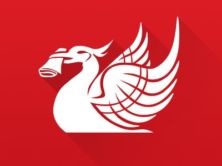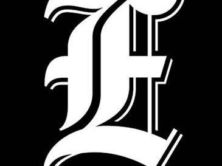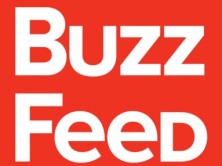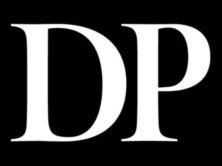WikiLeaks' Twitter account features an icon advocating for the release of Bradley Manning. (Credit: Twitter)
As WikiLeaks fights to keep its website online (as of yesterday, it was accessible under wikileaks.de and wikileaks.eu), PayPal “cut off” the whistleblower site’s account for donations.
WikiLeaks’ Twitter page featured a “Free Bradley” banner, likely referring to Bradley Manning, the U.S. Army soldier who allegedly provided Assange with many of the secret documents WikiLeaks has published. Given that one of WikiLeaks’ banks has confirmed WikiLeaks has donated money to Manning’s defense, doesn’t this mean that WikiLeaks supporters are paying for Manning’s legal defense as well?
Also noteworthy is the Guardian editor Alan Rusbridger, who reportedly stated in the comments section of the Guardian’s WikiLeaks’ coverage that: “he would think about contributing to Bradley Manning’s legal fund, given that the paper had profited off of his theft.”
PayPal
WikiLeaks has been actively promoting and requesting donations – both on its website and on its Twitter page. But, PayPal “cut off the account used for donations to the whistleblowing web site,” foreign wire service the AFP reported.
“PayPal has permanently restricted the account used by WikiLeaks due to a violation of the PayPal acceptable use policy, which states that our payment service cannot be used for any activities that encourage, promote, facilitate or instruct others to engage in illegal activity,” PayPal said in a statement.
See PayPal’s statement here.
As the Sunday Mail reported, “attempts to donate money yesterday generated an error message warning “this recipient is currently unable to receive money”.”
WikiLeaks tweeted about the PayPal news Dec 4: “PayPal bans WikiLeaks after US government pressure.”
Money to Manning?
WikiLeaks’ Twitter account features an icon image with the banner “Free Bradley.”
Manning may be sentenced to as many as “52 years in prison for his alleged role in copying the diplomatic cables, as well as the leak of military logs about incidents in Afghanistan and Iraq and a classified military video,” the Guardian reported.
CNN reported that WikiLeaks has donated money to Manning’s defense. WikiLeaks intends to disclose “by the end of this year” how it spends the donations it has received, CNN reported Wikileaks spokesperson Kristinn Hrafnsson said. CNN reported: “Wau Holland Foundation — the Berlin-based non-profit that handles most of the money donated to WikiLeaks — will finally be detailing how WikiLeaks has spent funds from the more than $1 million it has raised in the last year” — including salaries for WikiLeaks staff members.
CNN noted that Wau Holland’s vice president, Hendrik Fulda, e-mailed Wired.com in September stating that WikiLeaks had “authorized him to release funds from its account for Manning’s defense.”
“The money was expected to go to Courage to Resist, a California-based group that supports veterans. Fulda said at the time that the amount was still to be determined. Courage to Resist director Jeff Paterson said Manning’s legal defense was expected to cost about $100,000 and WikiLeaks was expected to cover “about half” of this.
Meanwhile, the Times of India reported that Swiss bank Postfinance may close WikiLeaks founder Assange’s bank account.
“Postfinance spokesman Marc Andrey told the NZZ am Sonntag newspaper that in order to keep a regular bank account open, Assange would have to prove he obtained Swiss residence, owns property in the country or has business dealings in Switzerland.
“The WikiLeaks website asks for donations to be sent to the Postfinance account for the so-called ‘Julian Assange Defence Fund’. Two other accounts, one in Iceland and the other in Germany, are also listed on the site for other types of funding requests.”
So, are donations to WikiLeaks being filtered through to the defense fund of Bradley Manning?
This scenario reminds iMediaEthics of the checkbook journalism case earlier this year, in which ABC News paid $200,000 to Casey Anthony, who is charged with murdering her daughter, Caylee. During court proceedings, it was revealed Anthony used the money ABC News paid her to pay for her defense.
Bans on WikiLeaks
“Federal employees and contractors” have been instructed not to look at any of WikiLeaks leaks — published either on the WikiLeaks website or through media outlets, the New York Times reported.
According to the Times, the Office of Management and Budget sent out a memo “to agency and department heads” telling staff members that they shouldn’t read WikiLeaks documents either through “government computers” or their “private decides.”
The memo states:
“Classified information, whether or not already posted on public websites or disclosed to the media, remains classified, and must be treated as such by federal employees and contractors, until it is declassified by an appropriate U.S. Government authority.”
Likewise, the Library of Congress has banned WikiLeaks’ website in “its reading rooms” and computer system, the Times reported.
The Washington Post noted that some “career counselors at Columbia University’s School of International and Public Affairs” even advised students not to comment or link to WikiLeaks documents on social networking sites.
In an e-mail to students, the school reportedly stated: “Engaging in these activities would call into question your ability to deal with confidential information, which is part of most positions with the federal government.”
The school’s office reportedly said a State Department employee and Columbia University alumnus is responsible for the advice.
Meanwhile, a State Department spokesperson, P.J. Crowley, dismissed the university advice, noting that “This sounds like an overly-zealous employee,” Crowley is quoted as saying in the Post. “Our focus is advising current employees not to download classified documents to an unclassified network. While we condemn what WikiLeaks has done, we cannot control what is done through private Internet accounts.”
Lawyers on WikiLeaks
Assange’s British lawyers, Mark Stephens and Jennifer Robinson, claimed that in recent days, “they have been surveilled,” the Guardian reported.
Stephens is quoted as saying he believes “the security services” are watching him. Robinson explained “I’ve noticed people consistently sitting outside my house in the same cars with newspapers.”
Robinson also accused that the U.S. State Department of being “inappropriate” in linking Assange and WikiLeaks with her. State Department legal adviser Harold Koh had written a letter, which has circulated online, addressed to both Assange and Robinson.
“By eliding client and lawyer, that was a very inappropriate attempt to implicate me, Robinson is quoted as saying. “That is really inappropriate to come from the state department of all places; they understand very well the rules on attorney-client protocol.”
The Guardian reported Robinson has asked for “a public retraction” from the State Department but hasn’t received one yet.
Claes Borgstrom, the lawyer for the two women accusing Assange of sexual molestation and rape, however countered claims that the charges against Assange are a “dirty trick,” calling those claims “nonsense” in an NBC Nightly News interview.
New York Times Public Editor Defends Publication
The New York Times’ public editor, Arthur Brisbane, defended the Times’ reporting on WikiLeaks in his Dec. 4 column here.
Brisbane wrote that ultimately by publishing stories on WikiLeaks, “Times readers and Americans at large” are “better informed.”
Brisbane did criticize Assange and the appearance of media in this story. “The image of Mr. Assange as ringmaster is deeply disturbing, especially since he seems to so relish his worldwide notoriety. The image of great news organizations as performers in the ring, though, is even more alarming to me.”
Brisbane has previously defended The Times’ publication of WikiLeaks documents. In his Oct. 31 column, Brisbane explained both the “risks” and “challenges” of publishing WikiLeaks documents






